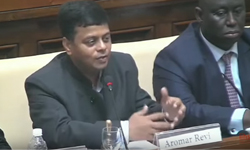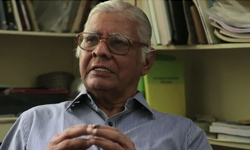The IIHS Research Programme locates itself within two simultaneous global transitions. Globally, cities are being recognised as being central to the agenda of transformation to an equitable, and sustainable world. At the same time, a knowledge transition is needed from the traditional models of disciplinary expertise to new, interdisciplinary ways of thinking that can address the developmental, innovation and technological opportunities of the 21st century—the rural-to-urban transition chief among them.
Urbanisation is one of the most critical domains of research and knowledge production in the 21st century. India’s urban transition alone will see 600 million people living in urban areas by 2031. There is no doubt that urbanisation is transforming India socially, politically, economically and ecologically—as is the case in much of the Global South. It is not only its empirical importance that makes urbanisation the foundation of a new knowledge paradigm; it is equally its inherently interdisciplinary nature.
IIHS recognises that interdisciplinarity both defines 21st-century knowledge paradigms and is necessary to engage with the complexity of urbanisation. It places equal emphasis on using grounded theory-building and applied research to ensure the translation of knowledge into practice for national development, social impact and urban transformation.
The Programme asks the following questions:
- What are the knowledge(s) needed to ensure an efficient, equitable, and sustainable urban transformation?
- How does this research translate and circulate into and within urban policymaking and implementation in India?
- What are the gaps that stand in the way of producing and applying this knowledge, and how can these be addressed?
- How does this research contribute to international knowledge production?
IIHS’ research draws on and contributes to 35 interconnected and cross-cutting knowledge themes, ranging from climate to housing, education to energy, mobility to ecosystems, and livelihoods to social protection. It brings together work from across five interdisciplinary Schools: School of Governance, School of Economic Development, School of Human Development, School of Systems & Infrastructure, and School of Environment & Sustainability.
IIHS is home to some of the world’s leading scholars, interdisciplinary researcher–practitioners and a talented cohort of early career researchers with education and training across 45+ disciplines from leading Indian and global universities.





